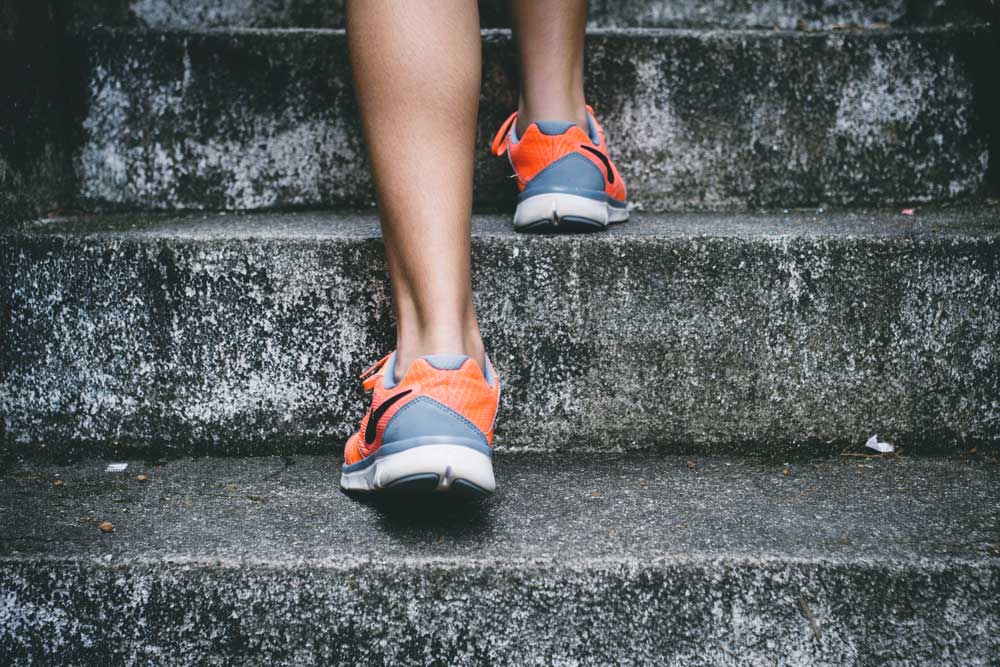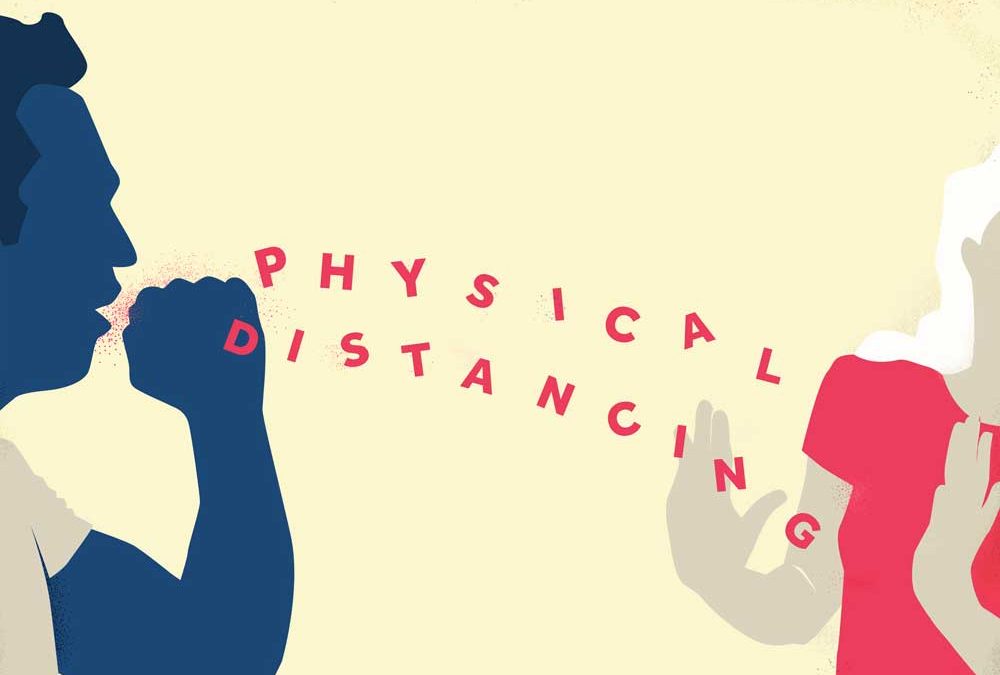Harry Keshet Ph.D. – Business Psychologist
SOCIAL IMMUNITY: As our national crisis touches each of us, we are all facing the greatest challenge of our lifetimes—to stay alive, get the food and medical care we need, keep or preserve jobs, and to keep our families and friends safe. And on top of all this happening we have lost one of our greatest resources for coping with a crisis: face-to-face interactions, social connections, and our ability to touch the people we love and care about. The simple ability to touch the people we love and care for is an essential part of being human.
The research of social isolation and social distancing is not encouraging. Many people experiencing these social constraints suffer physical and mental deterioration. The strongest defense for combating the coronavirus, our immunity, can weaken when we are socially isolated, and isolation can rob us of the strength needed to resist infection.
BUILDING IMMUNITY: Social immunity is strengthening our immune system through social interaction. It is the best tool we have for strengthening our immunity to resist infection. Even as we physically stay at home and practice physical or social distancing outside, social connections serve to build our health and sense of well-being. The use of telephones, computers and other technology allows us to hear and visually see others, which strengthens social ties.
Recently, I attended an online funeral filled with shared pain, grief, positive memories, and sweet, positive regards. All these emotions and feelings came alive as attendees experienced support for the family and the community through the online teleconference.
So, let us examine other strategies and techniques that we can practice making our lives better during this difficult period.
SOCIAL CONNECTIONS – THE KEY TO HEALTH: Research shows that when people in need receive support—in the form of food, social connection, appreciation, or even a simple showing of concern—their physical and emotional health improves. Consequently, their ability to resist infection is strengthened and their immunity increases.
But even more powerful is the effect on those who give to others; they gain even more than people they help. Brain studies of people who help others through acts of giving show a boost in the pleasure centers in the brain. Giving also stimulates parts of the brain that supports good health, resistance to illness, infection, and strengthen immunity. Givers are even more likely to gain positive self-regard and boost their own infection fighting immunity. Giving to others feels good emotionally and neurologically.
Simply stated: receiving needed support builds resistance to infection for the receiver and the act of giving provides an even greater boost for the giver.
MEANING & THE PANDEMIC: All the great religious and spiritual philosophies of the world recognize the uniqueness and universality of the true nature of human beings and to our relation to the Divine. They offer meaningful values that guide us to discover our inner strength to rise above and withstand great stress and life-threatening situations by helping us develop faith, and determination to uplift our spirits and prevail over any stress or fear. Discovering and following a spiritual or religious tradition during the pandemic can build immunity to infection when combined with health enhancing practices.
HEALING & MEANING: Neuropsychologists report that values are a powerful and necessary part of rewiring our brain for physical, emotional, and spiritual well-being. The pangs of our social isolation and the grief of our losses during the current pandemic are eased by finding meaning in our lives.
Consider the inspiration of the following examples:
“Ann Frank, the Dutch Jewish teenager, hid from the Nazis in a small room, living in almost total social isolation and under the ever-present threat of death. Yet, Ann’s spirits were uplifted and sustained by discovering beauty and meaning within. “
“She wrote, It’s difficult in times like these: ideals, dreams and cherished hopes rise within us, only to be crushed by grim reality. It is a wonder I have not abandoned all my ideals; they seem so absurd and impractical. Yet I cling to them because I still believe, in spite of everything, that people are truly good at heart.”
“Mahatma—the “great souled One”—is a name given Mohandas Gandhi by others as he led the nonviolent civil rights movement in South Africa and the Independence movement in India. He became a fearless powerhouse willing to love his enemies and to suffer the pain of hatred.
But Gandhi was not always a moral giant; he had to discover his greatness. As a child and into his early adult years, he was very shy, fearful, and unable to speak in public. He lacked almost any self-confidence. But he later discovered what he called his “two mothers:” the Bhagavad Gita, the great Hindu spiritual text, and Jesus’s Sermon on the Mount. He read them daily during his long struggle for freedom, and he gained great meaning, nurturance, faith, and guidance from his “two mothers.” These two great texts motivated his actions as he discovered through their inspiration a deep love and a great power within himself.”
“Viktor Frankl was a psychiatrist and Holocaust survivor who endured years of captivity in the Nazi death camps where suffering and death were daily realities. He later wrote about finding life meaning in the prison camps, which gave him the inner strength and power to survive the circumstances and brutality of his captivity. He kindled love for others, practiced acts of kindness, nurtured love of life itself with faith and hope. Miraculously, he found a deeper meaning beyond his suffering. In fact, his suffering became the opportunity to discover a life affirming purpose and he later established a meaning-centered school of psychotherapy called logo therapy, literally “healing through meaning.”
MEANING OVERCOMES SUFFERING: The experience of pain and suffering in life are common to everyone, but the decision to continue suffering is up to us. If we are attached mainly to the pleasures of life—also expressed as the gifts of the material world—then we live in fear of losing what we have or remaining unsatisfied and constantly wanting more. In a crisis, these attachments cause great pain and suffering. Spiritual and religious philosophies and practices can help to overcome suffering rather than letting it overcome us.
Krishna teaches in the Bhagavat Gita the imperative for us to discover our strength and true divine nature to overcome the battles of life. Moses delivered the Ten Commandments to help develop the strength to flourish. Jesus provided the wisdom of Love in the Sermon on the Mount. Mohammad gave us the Koran. Buddha showed us the middle way to overcome suffering. All of these great power generating souls arrived when their society was torn with chaos and conflicts in morals and ethics. Out of the seeds of despair and decay they reveal in their lives and teachings the fundamental meaning of human life. They encourage us to go beyond our normal limitations and tendencies, to find our inner strength, regardless of outer circumstances and to build our great character.
PERSONAL HEALTH STRATEGIES: To successfully resolve the challenges we face requires resiliency, accepting difficult situations and following effective health and spiritual sustaining practices.
RESILIENCY: Resiliency is the ability to recover from setbacks fairly quickly. It is an inner strength to bear and overcome great obstacles. Obstacles are not permanent. As we forbear and live with inner purpose, they change and pass over time.
Research indicates that resiliency is neurologically based, and people vary in their innate resiliency. The good news is that we can all learn this skill and make it a habit.

ACCEPTING DIFFICULT SITUATIONS: Staying at home and being socially isolated is painful but necessary to stop the spread of the corona virus and protect ourselves, our loved ones, and our fellow citizens. We are used to doing what we want and not being told we cannot interact socially. Most of us have trouble bearing the constraints they are forced to bear. We may feel angry at times, sad or fearful. This is natural and understandable.
Accepting difficulties means accepting that this is happening and not blaming others, ourselves or wasting energy fighting the reality of our constrained and our deprived state. Accepting difficulties is also not denying our pain and suffering. It means accepting reality, experiencing our pain, letting the pain pass, and effectively adjusting to the challenges we face.

MEDITATION: Brain science has discovered concrete evidence of meditation’s life-sustaining nature.
Meditation brain researchers using MRI and other advanced technology have studied the brains of nuns, monks, ministers, and common people learning meditation for the first time. Their studies provide evidence of its physical, emotional, and mental healing powers. The more you meditate regularly, the stronger the results. Mediation supports healthier bodies by improving the immune system, reducing blood pressure, increasing energy levels, improving heart, and breathing rates, and longevity. It lessens diseases including heart and brain problems, inflammatory, asthma, arthritis, and other disorders. Meditation improves emotional well being by diminishing anxiety, fear, and depression, improves mental functioning and self-esteem.
Start a mediation practice at home. The internet abounds with meditation classes sponsored by yoga centers, health clubs, colleges and universities, religious organizations, and businesses online. Find the one that suits you. Learn to meditate. Ask for support. Ask questions. Your persistence is well worth your time investment during this pandemic and after it passes.
YOGA: Like meditation, practicing hatha or physical yoga has great benefits for our physical, emotional, and mental health. It is known for its ability to ease stress and promote relaxation. Multiple studies have shown that doing yoga can decrease the secretion of cortisol, the primary stress hormone. It relieves anxiety, depression, post-traumatic stress disorder, can reduce inflammatory markers in the body and help prevent pro-inflammatory diseases, can improve heart health, and provides other impressive health benefits.

EXERCISE: Like practicing yoga, other forms of exercise build healthy bodies and healthy minds. Research shows that exercise is one of the best defenses against anxiety and depression. Practice yoga or other forms of exercise at home during and after the pandemic. They are great tools for immediately reducing our pain and worry. Check the internet for online classes.
DIET: For the last four years, I have spent months in India and have been treated by Indian Ayuvedic doctors for a variety of ailments. Central to their treatment was changing my diet. In Ayurvedic treatment, food is medicine. I have learned to eat for health rather than for pleasure. My health has greatly improved, and my diet helps sustain my health.
Research what is the best diet for you to follow. Often, the Mediterranean diet is recommended. Most western doctors are not trained in food science and its powerful therapeutic effects. Find nutritionists well informed about what to eat to help heal your disorders.
Following a healthy diet even when we feel distress is needed to have the energy for resiliency to accept and overcome the difficulties we face during this pandemic. Do not skip meals or eat too much junk food.
GETTING STARTED: In the face of our current stark reality, we must act. Finding inner meaning and being guided by positive values and beliefs are important and necessary as this pandemic continues its unrelenting path. Adding health and immunity sustaining practices including resiliency, accepting difficult situations, meditation, yoga, exercise and diet when practiced regularly strengthens our immunity, builds coping skills, and allows us to live peacefully—even as we face the greatest health challenge of our lives.
Join in and let us know how you are doing.
www.humaninteractionsolutions.com
May 16, 2020
2020 Harry Kesht. All rights reserved.
______________________________________________________________________________
REFERENCES
BUILDING IMMUNITY AND SOCIAL CONNECTIONS
- Scott Bea, “Want to Give? This Is Your Brain on a Helper High,” Mental Health, November 2016.
- Holt-Lunstad J1, Smith TB2, Baker M3, Harris T3, Stephenson D3. Inagaki; Kate E. Haltom, Kate E.; Suzuki, etc. “Loneliness and social isolation as risk factors for mortality: a meta-analytic review.” Perspective Psychol Sci. 2015 Mar;10(2):227-37.
- T.K. Inagaki & Lauren P. Ross, “How Helping People Affects Your Brain”, American Psychosomatic Journal of Behavioral Medicine, 2018; 1 DOI: 10.1097.
- Christine Karnes, ”Why a Grateful Brain Is A Giving One”, Mind & Body, December 2017.
- Sarah Kaplan, “Human connection bolsters the immune system, that’s why it’s more important than ever to be kind”, March 31, 2020, PDT.
- Daniel J Linden, “This Is Your Brain on Charitable Giving,” Psychology Today, August 2011.
- Ulrich Mayr, “Brain Imaging Reveals Joyous of Giving”, NIH, June 2007.
- Amanda McMillian, “Being Generous Really Does Make You Happier”, Time, JULY 14, 2017.
- “The Neurobiology of Giving Versus Receiving Support”, Psychosomatic Medicine: May 2016 – Volume 78 – Issue 4 – p 443-453.
HEALING & MEANING
- Anne Frank, “The Diary of a Young Girl”, Mass Market Paperback, 1993.
- Charles Andrews, “The Sermon on the Mount”, third edition, George Allen & Unwin limited, London 1949.
- Eknath Easwaran, “Gandhi The Man: How One Man Changed himself to Change the World,” Nilgiri Press, 2011.
- Jack Hawley, “The Bhagavad-Gita: A Walk-Through for Westerners”, New World Library, Novato, California 2001
- Swami Prabhavananda, “Sermon on the Mount According to Vedanta”, Vedanta Society of Southern California, 1992
- Swami Ranganathananda, “Eternal Values for A Changing Society , Bharatiya Vidya Bhavan, Bombay, -1971.
- Singh, T.H. and Samaresh Bandyopadyay (editors) “Thoughts on the Synthesis of Science and Religion”, The bhakti Vedanta Society, Kolkata, India, 2001.
- Thich Nhat Hanh, “The Miracle of Mindfulness,” Beacon Press, Boston, MA, 1987.
- Viktor Frankl, “Man’s Search for Meaning,” Penguin Random House, New York, 1994
PERSONAL HEALTH STRATEGIES: MEDITATION AND BRAIN STUDIES
1.Andrew Newberg M.D. & Mark Robert Waldman, ”How God Changes Your Brain: Breakthrough
Findings from a Leading Neuroscientist”, Penguin Random House, New York, 2015.
- Richard J Davison with Sharon Bagley, “The Emotional Life of Your Brain”, Avery press, New York, 2012.
- Dusana Dorjee, “Neuroscience and Psychology of Meditation in Everyday Life: Searching for the Essence of Mind,” London: Routledge, 2017.
- Daniel Goleman & Richard J. Davison, “Altered Traits: Science Reveals How Meditation Changes Your Mind, Brain and Body”, Avery Press, New York, 2017.
- Rick Hanson, ‘Hardwiring happiness: The Brain Science of Contentment, Calm and Confidence’, Harmony Books, New York, 2013.
- The Dalai Lama and Desmond Tutu, Douglas Abrams, “The Book of Joy: Lasting Happiness in a Changing World,” Penguin Random House Press, New York, 2016.
PERSONAL HEALTH STRATEGIES: YOGA, EXERCISE AND DIET
- “How You Can Get Started on the Mediterranean Diet,” Health Essentials, Oct 15, 2015.
- Rachel Link, “13 Benefits of Yoga That Are Supported by Science”, Health line, August 2017.
- Stuart Biddle, “Physical Activity and Mental health: Evidence is Growing,” World Psychiatry.2016 Jun; 15(2): 176–177.

